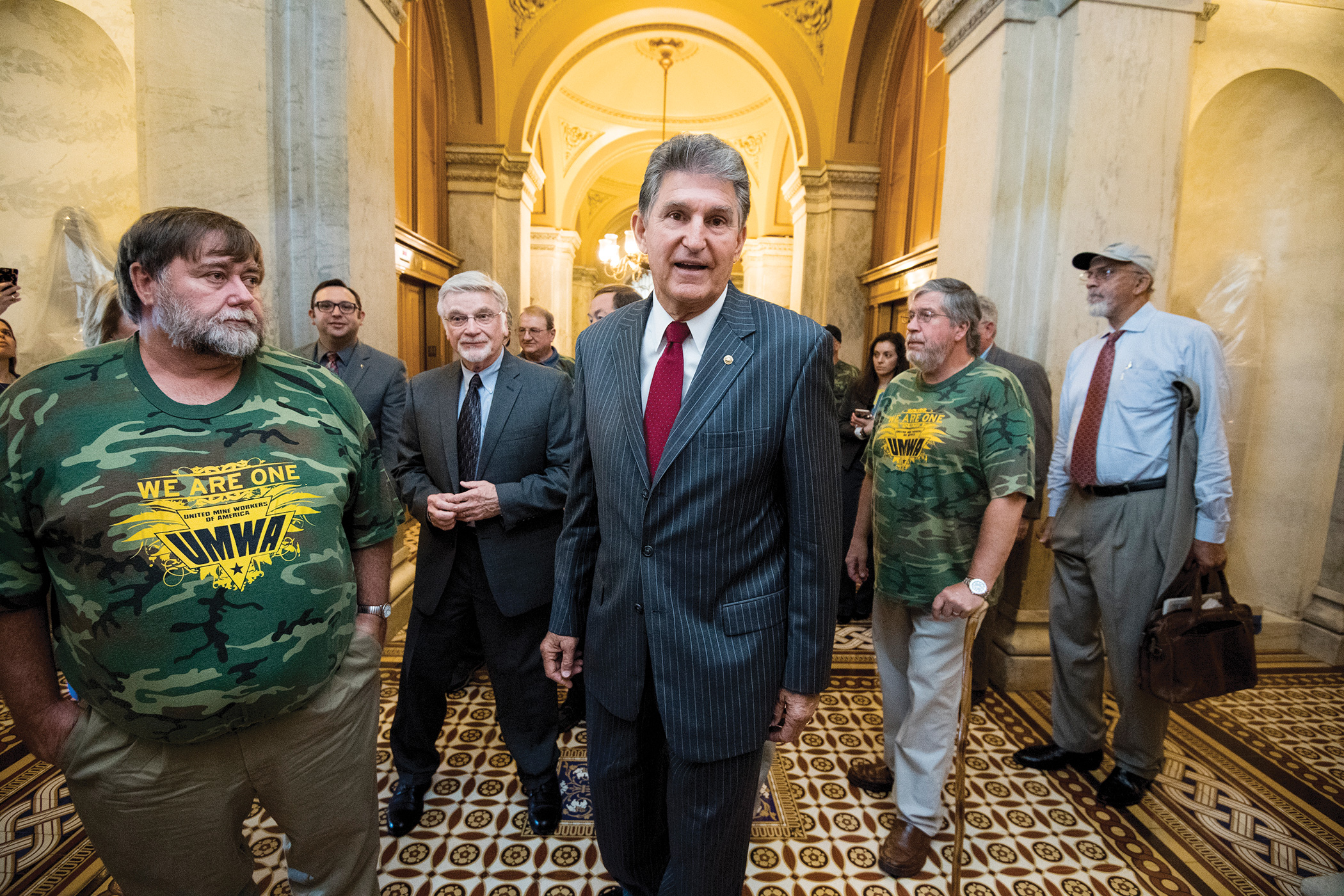Republicans breathed a sigh of relief on May 8 when Don Blankenship—a bigot with a penchant for going after what he called “China people” and a coal baron who went to jail for a disaster that killed 29 miners—was soundly defeated in West Virginia’s GOP Senate primary. Following a May 1 prime-time Fox News debate in which Blankenship’s Republican rivals, Congressman Evan Jenkins and state attorney general Patrick Morrisey, attacked each other and ignored Blankenship, a handful of internal polls (conducted by the Jenkins and Morrisey campaigns and a Republican pollster unconnected to either candidate) suggested Blankenship got a bump that put him into contention to win the nomination. No public polls were released in the final two weeks of the campaign.
A Blankenship victory would have tossed away a good pick-up opportunity for Republicans, who now control the Senate 51-49 and see incumbent Democrat Joe Manchin as vulnerable. And it would have indicated that the Republican party was heading in a very ugly direction—that the Roy Moore fiasco in Alabama wasn’t a fluke, and the most demagogic aspects of Trumpism held more sway over a plurality of GOP voters than Trump himself. The president tweeted the day before the election that West Virginians should oppose Blankenship and vote for Jenkins or Morrisey, who had stopped fighting each other and focused on defeating Blankenship in the closing days of the campaign. In the end, Morrisey won with 35 percent of the vote, edging out Jenkins, who came in second at 29 percent. Blankenship came in a distant third at 20 percent. Blankenship’s poor showing likely means the polls were overstating his support. But it’s quite possible that the final days of the campaign, when Blankenship took fire from Trump and Morrissey, also hurt his election day performance.
Democrats weren’t entirely displeased with the result: A Democratic super-PAC had spent nearly $2 million against Jenkins (while laying off the other two candidates), a clear sign they thought Jenkins, a former Democrat, was the strongest GOP threat to Manchin. But with Morrisey on the ballot, the Senate seat is still up for grabs in November. “It’s going to be a close race,” says Jennifer Duffy of the Cook Political Report. Donald Trump won the state 69 percent to 26 percent in 2016, but Manchin, a former governor, has been able to withstand the Republican trend of the state.
On election night, Morrisey immediately took up the task of trying to unite his party. He had been (dubiously) attacked by Jenkins during the primary as a “NeverTrumper” because he didn’t publicly back Trump until the Republican National Convention. But in his victory speech he heaped praise on the president. Addressing Trump directly, Morrisey looked into the news cameras and said: “If you’re watching right now, let me tell you: Your tweet was huge. I want to further say, thank you. You’ve been to the state now four times. I’d like you to come back as many times as you can between now and November.”
Morrisey praised the other Republicans in the race, but when asked that evening if he’d like Blankenship to campaign with him, he dodged the question. “I want to unite the whole Republican party,” Morrisey told The Weekly Standard. “I think all the Don Blankenship supporters out there should rally behind my candidacy because I know they care a lot about draining the swamp.”

Asked to name the biggest issues in his campaign against Manchin, Morrisey highlighted guns, abortion, and taxes. “There’s a long list, and I talked about some of them on stage. But beyond him selling West Virginia out on Hillary and Barack Obama, I think he’s been very problematic on the Second Amendment and on issues of life,” Morrisey said. Manchin “voted against the tax cuts, and he really hasn’t been a leader for our state.” Though Manchin is generally supportive of gun rights and votes pro-life, he has flip-flopped on federal funding for Planned Parenthood and has cosponsored some modest gun control legislation.
Whether those social issues will be able to pry away enough Manchin supporters remains to be seen. Morrisey, of course, has his own vulnerabilities. He spent most of his life in New Jersey and unsuccessfully ran for Congress there in 2000. In 2012, he defeated a five-term Democratic incumbent in his first race to be West Virginia attorney general, and he handily won reelection to the post in 2016.
The May 8 primaries were in general a positive development for Republicans. Not only was their nightmare averted in West Virginia, Duffy argues Republicans may also have nominated the best candidate in Indiana’s three-way Senate primary, in which businessman Mike Braun defeated rival Republican congressmen Luke Messer and Todd Rokita. “Some people said Republicans didn’t get the candidate they need. I kind of disagree. I think they may have actually found one who can’t be labeled part of the problem,” says Duffy, who cautions that Braun, who served three years in Indiana’s legislature, is nevertheless inexperienced and hasn’t been well vetted.
The primaries have put the general election into clearer focus—Mississippi and Arizona appear to be the only two primaries left on the calendar in which Republicans could badly damage their prospects by nominating a disastrous candidate. But it remains anyone’s guess which party will end up controlling the Senate in 2019. “I believe there’s like a 40 to 45 percent chance that Democrats get the majority,” says Duffy. “There’s an equal chance we end up with a tied Senate. There’s a slim chance we see a status quo Senate.”
